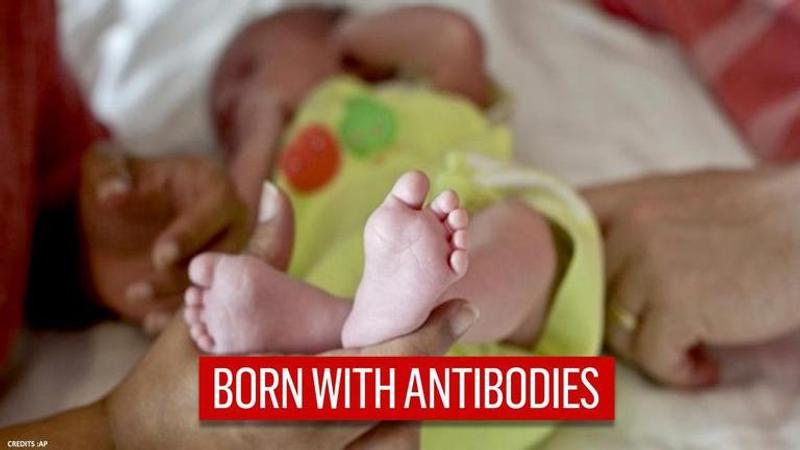Published 15:14 IST, November 29th 2020
Singapore woman who contracted COVID-19 in March gives birth to baby with antibodies
A woman in Singapore, who had contract COVID-19 in March when she was pregnant, has given birth to a baby with antibodies against the virus

A woman in Singapore, who had contracted COVID-19 in March when she was pregnant, has given birth to a baby with antibodies against the virus, hinting at the possibility of the transfer of infection from mother to child, Straitstime reported.
The baby was born to Celine Ng-Chan in November without Coronavirus but with its antibodies. The doctor suspects that she may have transferred her COVID-19 antibodies to the baby during her pregnancy. Ng-Chan was mildly ill from the disease and was discharged from the National University Hospital (NUH) after two-and-a-half weeks of treatment.
As per the World Health Organisation, it is not yet known whether a pregnant woman with COVID-19 can pass the virus to her foetus or baby during pregnancy or delivery. To date, scientists have not found an active virus in samples of fluid around the baby in the womb or in breast milk.
However, doctors in China have reported the detection and decline over time, of COVID-19 antibodies in babies born to women who suffered the disease. Meanwhile, doctors in the US have said that the transmission of coronavirus from mothers to newborns is rare.
Baby born with antibodies may not be immune to virus
While babies of women with COVID-19 during their pregnancies may be born with antibodies, it remains unclear whether the infant is immune to the virus or how long the immunity would last. In Ng-Chan's case, it is not clear if the antibodies were passed from the mother or the baby developed them for him or herself.
As per a study published by the journal Emerging Infectious Diseases, all had detectable levels of IgG antibodies at birth of the 11 infants born to COVID-19 positive women in China, while five had detectable IgM antibodies.
IgM is the initial antibody that is produced in response to an infection, but it is usually not transferred from mother to fetus through the placenta because of its large size. On the other hand, smaller IgG antibodies can be transferred passively from mother to fetus through the placenta. Although the duration of the baby's immunity from the maternal IgG antibodies is unclear.
(with inputs from agencies)
Updated 15:14 IST, November 29th 2020




